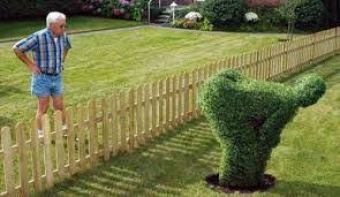It’s a tragedy every time a police officer is killed. But it shouldn’t be an excuse for shooting first and asking questions later.
Every year in the United States about 100 cops are killed in the line of duty. Half are accidents, the other half is murder.
Cops kill about 1000 people a year. About 25 times more than people kill cops. That number could be much higher because there’s no reliable national data on how many people die from police actions or while being in police custody.
Cops do a very good job catching cop killers. Most people who kill cops are killed at the scene or commit suicide. When a police officer is killed and they can’t solve the case, it makes the news.
But cops suck at solving crimes. Shockingly, only about 45 percent of violent crimes are even prosecuted. Some years only 25-percent of murders are “solved.” Good odds for hit men and serial killers. Did they ever catch Dexter?
Cops risk their lives, and what they say about cop killers might be “common sense” — anyone willing to kill a police officer is even more wiling to kill you. Cops say, they really are protecting us when they aggressively hunt cop killers.
But common sense is often bullshit. And so is the idea cops are really protecting us more than themselves.
Most killers of police (and prison guards) do so on impulse. It’s rare that the crime is planned and executed. Usually they are stopped or interrupted doing another crime (often a non-violent crime) and then get in a violent confrontation with police.
I’m not defending the criminal — they often get what they deserve — killed at the scene.
I am saying the argument that anyone who would attack a cop is more likely to attack other people is bullshit. If they followed the numbers, cops should put more energy into other murders and stop the selfish pursuit of catching each cop killer.
As to danger, being a cop doesn’t even make the top 10. Of the top 34 most dangerous jobs — being a cop is 16th.
About 13.7 out of every 100,000 cops are killed or injured each year.
Here’s five more dangerous jobs than being a cop:
- Sales/delivery driver (26.5/100,000 — twice as dangerous as being a cop).
- Supervising landscapers (20.2/100,000)
- Farming (24.7/100,000)
- Roofing (51/100,000 — more than 3-times as dangerous as being a cop).
- Lumberjacks (97.6/100,000 more than 7-times as dangerous as being a cop).
If landscapers and roofers killed clients at a 25-1 ratio, there would be mass graves of dead people with half-finished tile roofs and freshly cut grass.

Landscapers get angry too. Stole image here.
I’m not saying being a cop isn’t dangerous. I’m not saying we should ignore or “coddle” cop killers.
I’m saying that we should treat police like everyone else. We should not have special protections, “immunity” clauses, more investigative resources for crimes against cops (and not prosecute police when they kill other people) for doing a job that is safer than being a UPS driver or mowing lawns.
We have given a lot of power to our uniformed police. Arming them with military weapons, shielding them from prosecution, increasing spending while crime rates are dropping (and we cut funding for schools).
It’s time that we brought policing in line with the risks and rewards of other professions — including holding cops accountable for their actions. That should reduce the number of people they kill each year — including people of color.
On the rewards, we should reduce the number of police, pay them better and turn the majority of “police” calls that are non-violent situations more suitable to social work over to other groups.
It’s not easy being a cop. But that shouldn’t give them a license to kill, and in the past 50 years in the United States, that’s exactly what we have done.
Categories: Political Correctness

100% agree. And the stress that cops always say they are under is also overblown relative to other professions.
No doubt police work is stressful. But teachers and nurses are dealing with many more people all at once.
Hmmm … Interesting post, KR.
Having worked on and off with law enforcement for years, here’s one additional point of emphasis. Probably the most dangerous situations that cops encounter involve domestic violence. These circumstances are incredibly perilous for all sorts of reasons. I won’t expound upon those elements here other than to say, these often are incredibly hazardous cases.
Some offer simplistic notions for having more social workers/mental health specialists handle such incidents inferring that this would offer more de-escalation, and in some places (like Tucson and others), you have mobile crisis intervention teams that can be incredibly helpful. But, here’s the rub. By definition, DV cases involve violence and, of course, that violence is perpetrated, most often, upon women. Good, highly trained and competent cops can and often do play key roles in diffusing DV crises, either as first responders when their lives and safety are particularly at risk, or in coordination with crisis intervention teams. The bottom line is, in many situations, crisis intervention participants need and want competent cops with them or ahead of them because the immediate circumstance is so dangerous.
When we look at redistributing or reducing funds for police, we had better pay attention to the appropriate roles that cops play in volatile domestic disputes. I’m all for thoughtful reforms, but let’s not forget that DV cases are often incredibly messy, and pose a significant, if not the most dangerous, risk to cops.
Agree. Domestic violence is a very difficult call. And none of this is easy. But first step is to admit there’s a problem.
Kieran, that anonymous comment was from Geno. Didn’t mean for it to be anonymous.
We all knew it was you. The wordiness and bureaucratic language gave you away.
thanks for information